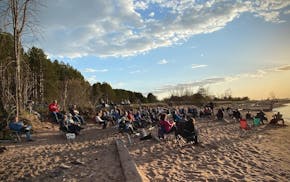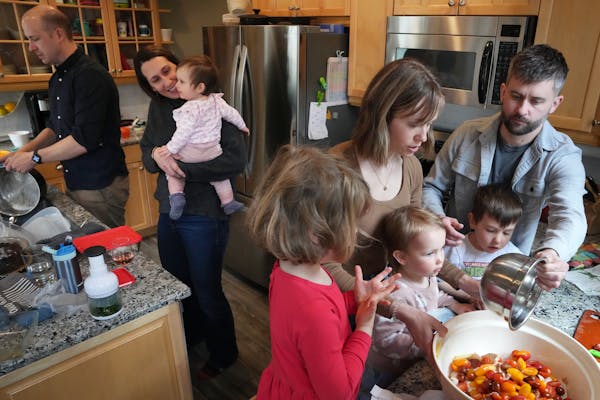It's another year, and another 8 percent property tax increase in Minneapolis.
For the sixth straight year, the City Council is poised to raise next year's levy by 8 percent.
And if that's prompted any backlash, it wasn't apparent Tuesday at the council's annual truth-in-taxation hearing. Only six people of the 24 testifying complained about taxes being too high. That's out about 126,000 taxable parcels in the city.
But Council Budget Chair Paul Ostrow wonders how long the city can keep it up. He's even getting an earful from other elected officials.
Ostrow recently gave a presentation at the National League of Cities on the city's long-term financial planning efforts, the source of the 8 percent annual hikes.
"They expressed some surprise and skepticism ... 'You're still getting re-elected?'" he said. Although he thinks previous increases were warranted in the face of large-scale cuts in state aid, yet the question stuck with him. "That was a reminder that that level of property tax is not sustainable."
He got agreement from Vic Harvath, who has seen the tax on his Kenny neighborhood house in southwest Minneapolis rise by an average of 23 percent annually for the past nine years.
"It's time that you start depending on your department heads, your managers, to squeeze a little bit," the journeyman plumber testified.
So where's the $18 million raised by the 8 percent hike going in 2008? Half will meet increased costs for services already provided. Nearly a quarter will be used to hire 18 cops, three firefighters and four 911 operators. The rest will be split between meeting the city's rapidly rising pension costs and continuing to work out of a long-running deficit in the accounts for technology, equipment and self-insurance. The property tax yields less than one in five dollars the city collects. This year's budget will rise by 2 percent to $1.35 billion.
How the tax increase falls on a property depends primarily on whether its market value rose and whether it is losing some of the protection that shielded some homes from rapidly rising values. Some homes not nicked by either factor will be taxed slightly less next year because the city's tax base grew enough to absorb the hike. Others will see double-digit increases. More than half who testified in the standing-room-only crowd of about 85 people asked the council to maintain money and independence for the city's Neighborhood Revitalization Program, which allows neighborhoods to finance locally set priorities. The council is to discuss those issues next week. The council votes on the tax increase and budget today at a 5:05 p.m. meeting.
Steve Brandt • 612-673-4438
North Oaks withdraws request for density exemption from Met Council

Attorney Tayler Rahm wins GOP backing in battleground Second District

Civil War group honors the last Union veteran buried in each Minnesota county
Boy, 16, shot at YMCA in Coon Rapids

